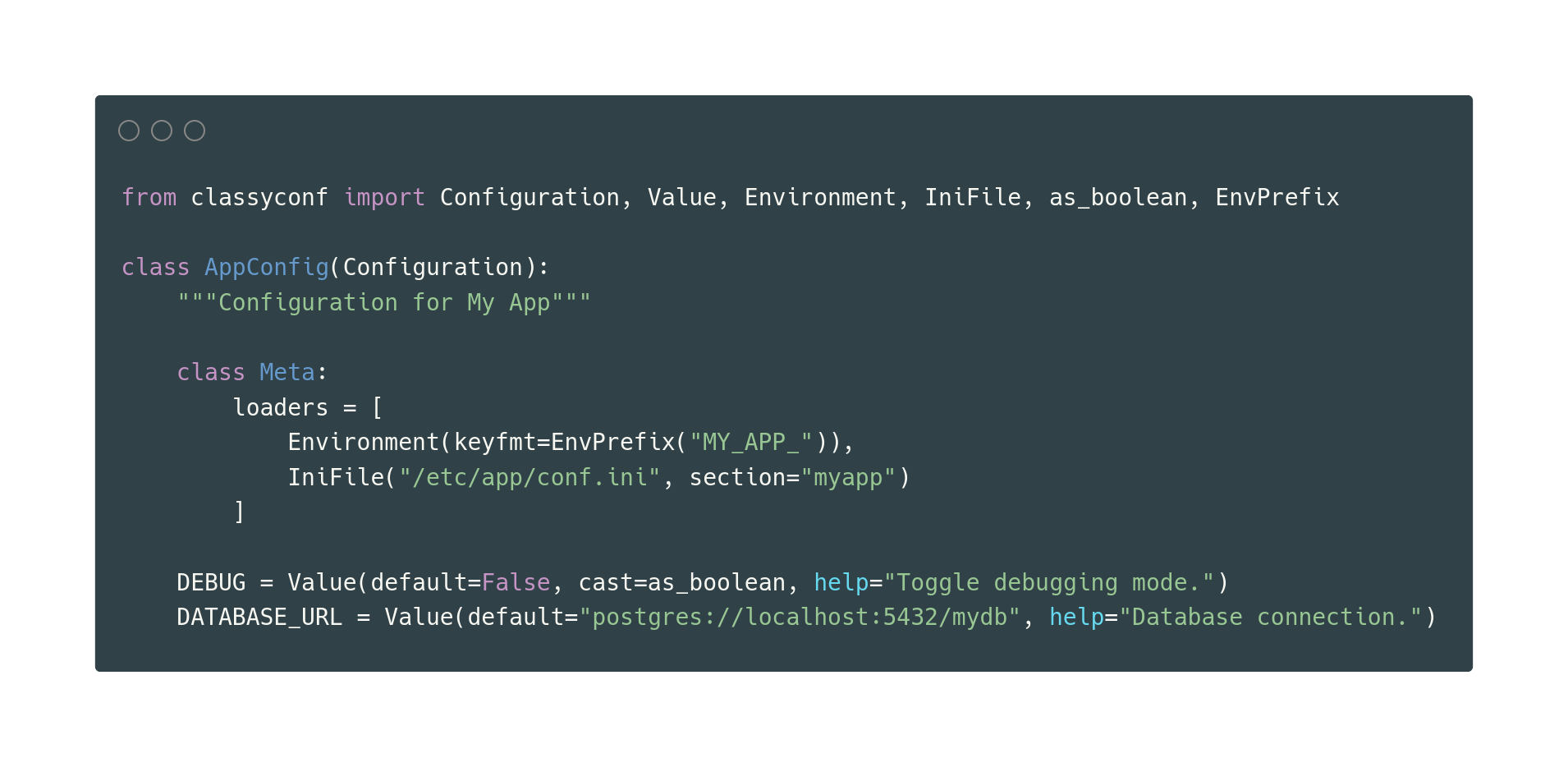Description
It provides a declarative way to define settings for your projects contained
in a class that can be extended, overriden at runtime, config objects can be
passed around modules and settings are lazily loaded, plus some other
goodies.
You can find out more at the intro post here: http://hernantz.github.io/configuration-is-an-api-not-an-sdk.html
ClassyConf alternatives and similar packages
Based on the "Configuration" category.
Alternatively, view classyconf alternatives based on common mentions on social networks and blogs.
-
python-dotenv
Reads key-value pairs from a .env file and can set them as environment variables. It helps in developing applications following the 12-factor principles. -
django-environ
Django-environ allows you to utilize 12factor inspired environment variables to configure your Django application. -
django-split-settings
Organize Django settings into multiple files and directories. Easily override and modify settings. Use wildcards and optional settings files. -
parse_it
A python library for parsing multiple types of config files, envvars & command line arguments that takes the headache out of setting app configurations.
InfluxDB - Power Real-Time Data Analytics at Scale

* Code Quality Rankings and insights are calculated and provided by Lumnify.
They vary from L1 to L5 with "L5" being the highest.
Do you think we are missing an alternative of ClassyConf or a related project?
README
ClassyConf

ClassyConf is the configuration architecture solution for perfectionists with deadlines.
It provides a declarative way to define settings for your projects contained in a class that can be extended, overriden at runtime, config objects can be passed around modules and settings are lazily loaded, plus some other goodies.
You can find out more documentation at Read the Docs website, and the intro post here to understand the motivations behind it.
Here is a preview of how to use it:
from classyconf import Configuration, Value, Environment, IniFile, as_boolean, EnvPrefix
class AppConfig(Configuration):
"""Configuration for My App"""
class Meta:
loaders = [
Environment(keyfmt=EnvPrefix("MY_APP_")),
IniFile("/etc/app/conf.ini", section="myapp")
]
DEBUG = Value(default=False, cast=as_boolean, help="Toggle debugging mode.")
DATABASE_URL = Value(default="postgres://localhost:5432/mydb", help="Database connection.")
Later this object can be used to print settings
>>> config = AppConfig()
>>> print(config)
DEBUG=True - Toggle debugging mode.
DATABASE_URL='postgres://localhost:5432/mydb' - Database connection.
or with __repr__()
>>> config = AppConfig()
>>> config
AppConf(loaders=[Environment(keyfmt=EnvPrefix("MY_APP_"), EnvFile("main.env")])
extended
class TestConfig(AppConfig):
class Meta:
loaders = [IniFile("test_settings.ini"), EnvFile("main.env")]
overridden at runtime
>>> dev_config = AppConfig(loaders=[IniFile("dev_settings.ini")])
>>> dev_config.DEBUG
True
accessed as dict or object
>>> config.DEBUG
False
>>> config["DEBUG"]
False
iterated
>>> for setting in config:
... print(setting)
...
('DEBUG', Value(key="DEBUG", help="Toggle debugging on/off."))
('DATABASE_URL', Value(key="DATABASE_URL", help="Database connection."))
or passed around
def do_something(cfg):
if cfg.DEBUG: # this is evaluated lazily
return


